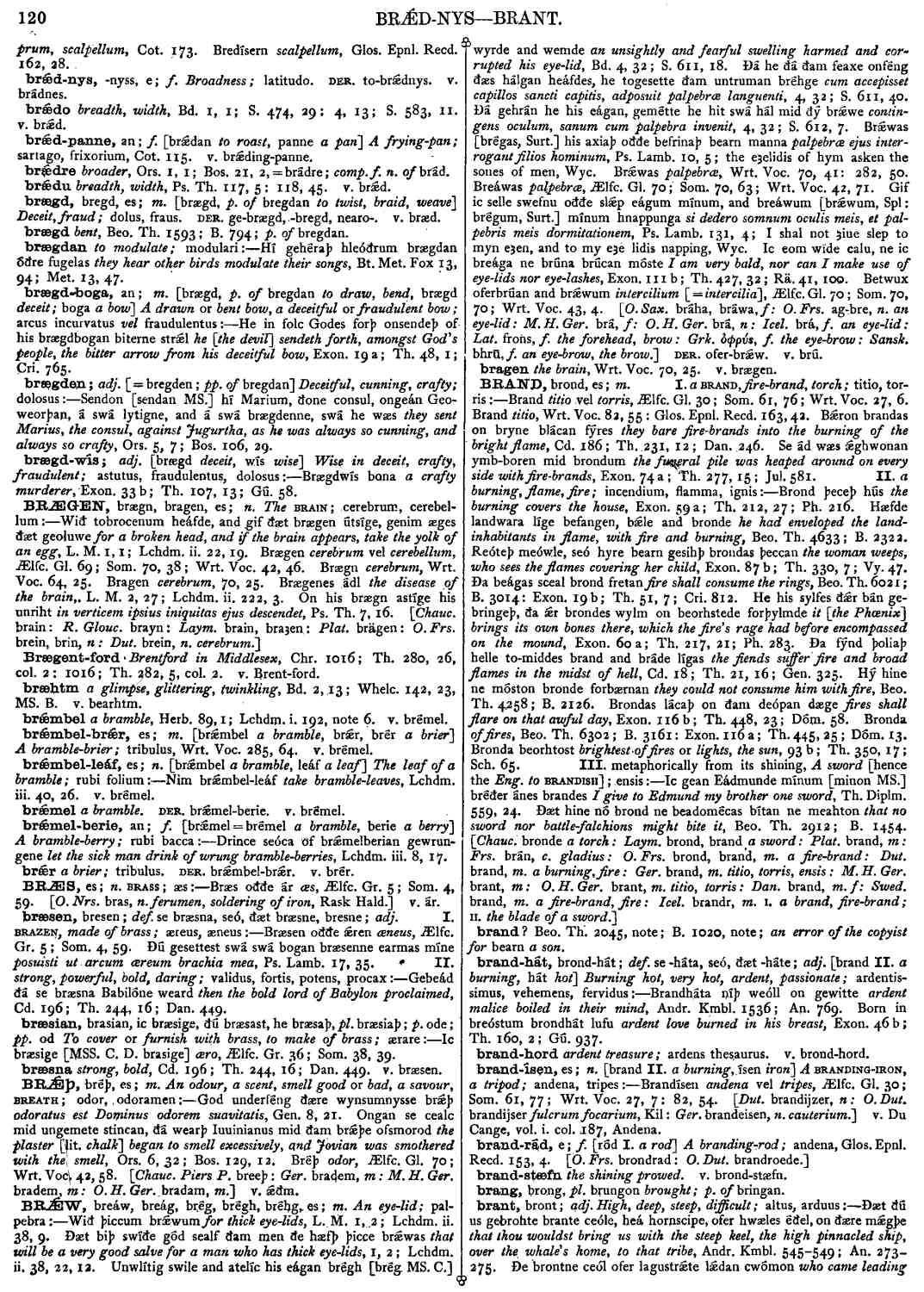BRǼW
- noun [ masculine ]
-
Wið þiccum brǽwum
for thick eye-lids,
- L. M. 1, 2; Lchdm. ii. 38, 9.
-
Ðæt biþ swíðe god sealf ðam men ðe hæfþ þicce brǽwas
that will be a very good salve for a man who has thick eye-lids,
- 1, 2 ; Lchdm. ii. 38, 22, 12.
-
Unwlítig swile and atelíc his eágan brégh [brég MS. C.] wyrde and wemde
an unsightly and fearful swelling harmed and corrupted his eye-lid,
- Bd. 4, 32 ; S. 611, 18.
-
Ðá ðá ðam feaxe onféng ðæs hálgan heáfdes, he togesette ðam untruman bréhge
cum accepisset capillos sancti capitis, adposuit palpebræ languenti,
- 4, 32; S. 611, 40.
-
Ðá gehrán he his eágan, gemétte he hit swá hál mid ðý brǽwe
contingens oculum, sanum cum palpebra invenit,
- 4, 32; S. 612, 7.
-
Brǽwas [brégas, Surt.] his axiaþ oððe befrinaþ bearn manna palpebræ ejus interrogant filios hominum, Ps. Lamb. 10, 5; the eȝelidis of hym asken the sones of men, Wyc. Brǽwas
palpebræ,
- Wrt. Voc. 70, 41: 282, 50.
-
Breáwas
palpebræ,
- Ælfc. Gl. 70; Som. 70, 63; Wrt. Voc. 42, 71.
-
Gif ic selle swefnu oððe slǽp eágum ménum, and breáwum [brǽwum. Spl: brégum, Surt.] mínum hnappunga si dedero somnum oculis meis, et palpebris meis dormitationem, Ps. Lamb. 131, 4; I shal not ȝiue slep to myn eȝen, and to my eȝe lidis napping, Wyc. Ic eom wíde calu, ne ic bréaga ne brúna brúcan móste
I am very bald, nor can I make use of eye-lids nor eye-lashes,
- Exon. 111 b; Th. 427, 32; Rä. 41, 100.
-
Betwux oferbrúan and brǽwum
intercilium [= intercilia ],
- Ælfc. Gl. 70; Som. 70, 70; Wrt. Voc. 43, 4.
Bosworth, Joseph. “BRǼW.” In An Anglo-Saxon Dictionary Online, edited by Thomas Northcote Toller, Christ Sean, and Ondřej Tichy. Prague: Faculty of Arts, Charles University, 2014. https://bosworthtoller.com/4964.
Checked: 0